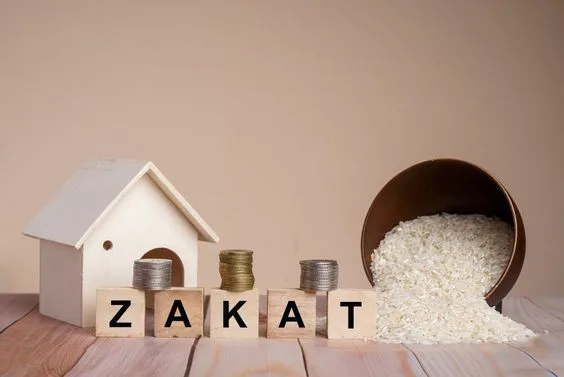Question
Assalamualaikum wbt, Datuk. I have a few questions regarding zakat and would like some clarification. How does zakat apply to a daughter who is working but still unmarried? Is she still under her father’s responsibility? Is it her father’s duty to pay zakat on her behalf? Or is she allowed to pay zakat on her own with her father’s permission? Or is it the daughter’s own obligation to pay zakat on herself? I seek clarification on this matter.
Answer
Alhamdulillah, praise and gratitude to Allah for the countless blessings and gifts bestowed upon us all. May peace and blessings be upon our beloved Prophet Muhammad SAW, his family, his companions, and those who follow in his footsteps until the Day of Judgement.
Zakat is one of the pillars of Islam that has been obligated by Allah SWT upon Muslims. Allah SWT requires Muslims to pay zakat if certain conditions are met, taking from the wealthy and giving to the poor to purify their wealth. Allah SWT says:
خُذْ مِنْ أَمْوَالِهِمْ صَدَقَةً تُطَهِّرُهُمْ وَتُزَكِّيهِم بِهَا وَصَلِّ عَلَيْهِمْ ۖ إِنَّ صَلَاتَكَ سَكَنٌ لَّهُمْ ۗ وَاللَّـهُ سَمِيعٌ عَلِيمٌ
Meaning: “Take from their wealth a charity (zakat) by which you purify them and cause them to grow, and pray for them. Indeed, your prayer is a reassurance for them. And Allah is Hearing and Knowing.” [Surah At-Taubah: 103]
Sheikh Dr. Wahbah Zuhaili states in his book that the scholars (fuqaha) believe the charity mentioned in the verse above refers to zakat, which is obligatory upon all humankind. [See Tafsir al-Wasit, 1/913]
Zakat fitrah is one type of zakat that Muslims are required to pay annually. It was made obligatory in the second year of Hijrah when fasting in Ramadan was also mandated. From Ibn Umar R.Anhuma, he said:
فَرَضَ رَسُولُ اللَّهِ صَلَّى اللهُ عَلَيْهِ وَسَلَّمَ زَكَاةَ الفِطْرِ صَاعًا مِنْ تَمْرٍ، أَوْ صَاعًا مِنْ شَعِيرٍ عَلَى العَبْدِ وَالحُرِّ، وَالذَّكَرِ وَالأُنْثَى، وَالصَّغِيرِ وَالكَبِيرِ مِنَ المُسْلِمِينَ، وَأَمَرَ بِهَا أَنْ تُؤَدَّى قَبْلَ خُرُوجِ النَّاسِ إِلَى الصَّلاَةِ
Meaning: “The Messenger of Allah SAW made zakat fitrah obligatory with a measure of one sa’ (about four handfuls) of dates or one sa’ of barley upon slaves and free persons, men and women, young and old, among the Muslims. He instructed that it should be given before people go out for the (Eid) prayer.” [Narrated by al-Bukhari (1503)]
Imam al-Nawawi stated: According to the scholars of the Shafi’i school, the most authentic opinion on the determination of the amount and type of zakat fitrah is based on غالب قوت البلد (the staple food of the majority of the population). [See al-Majmu` Sharh al-Muhazzab, 6/132]
Sheikh Muhammad al-Zuhaili stated: The amount of zakat fitrah has been specified and must be given when the sun sets on the last day of Ramadan, with the stipulated conditions, for every mukallaf (accountable person) and those under their financial care. [See al-Muktamad fi al-Fiqh al-Shafi’i, 2/95]
The mandatory conditions for fulfilling zakat fitrah are as follows:
1. Islam: It is also obligatory for those who have apostatized after converting to Islam.
2. Timing: The time for obligation has indeed been set, which is at sunset on the last day of Ramadan.
3. Ability: Being capable of paying zakat fitrah at the obligatory time. If one's ability arises after the appointed time, then zakat is not required. [Ibid, 2/98]
Fulfilling Zakat Fitrah
Zakat fitrah is obligatory upon oneself and upon anyone whom one is responsible for providing sustenance. This includes one’s wife, ascendants, and descendants (whether male or female) provided they fall within the category of the poor and needy. [Refer to al-Mausu'ah al-Fiqhiyah al-Kuwaitiyah, 23/339]
If a person financially supports someone due to marriage (spouse, children), kinship (parents, siblings), or servitude (servant), it is obligatory for them to also pay the zakat fitrah for those under their care. The principle states:
كُلُّ مَن تَلْزَمُهُ نَفْقَةُ غَيْرِهِ تَلْزَمُهُ فِطْرَتُهُ
Meaning: Anyone who is obligated to support someone must also fulfill the zakat fitrah for their dependents. [Refer to Taqrirat al-Sadidah, p. 419]
Therefore, in general, it is obligatory for the usul (financial supporter) to pay zakat on behalf of his daughter. However, this is subject to three obligatory conditions:
1. The usul is financially capable.
2. The furu' (children) are still young and have not reached puberty.
3. The furu' is a person who is poor and unable to work. [Refer to al-Muktamad fi al-Fiqh al-Syafi’e, 4/288-289]
Thus, if a daughter does not meet these obligatory conditions, her father is not required to support her and, subsequently, to pay zakat fitrah on her behalf.
Working Women Paying Zakat
Based on the above question, therefore, in the above case, we lean towards the view that a woman is required to pay her own zakat fitrah if she is capable, especially if she is already working and has her own income. However, if her father wishes to pay zakat fitrah for his daughter, it is permissible, but with the condition that he obtains permission from his daughter.
Sheikh Muhammad Zuhaili in his book states that it is not permissible for someone to pay zakat fitrah on behalf of another person (non-relative) without obtaining their permission. It is invalid if performed without permission. This is because zakat fitrah is a form of worship and will not be fulfilled unless there is consent from the person. However, if permission is obtained, the zakat fitrah is considered fulfilled. [Ibid, 2/102]
From a legal perspective, zakat fitrah is valid if paid directly to the eligible recipients (asnaf) or through a representative. It is necessary to have the intention while giving it to asnaf or the representative, using statements such as: "This is my obligatory zakat from my wealth; this is my obligatory charity from my wealth; this is my zakat from my wealth as prescribed." This distinguishes it from voluntary charity, vows, and expiation. [Ibid, 2/127-128]
Finally, may this brief explanation provide us with a better understanding to live a more fulfilling daily life. Ameen.
Wallahua`lam.
Source:
https://maktabahalbakri.com/1258-zakat-wanita-yang-belum-berkahwin/

